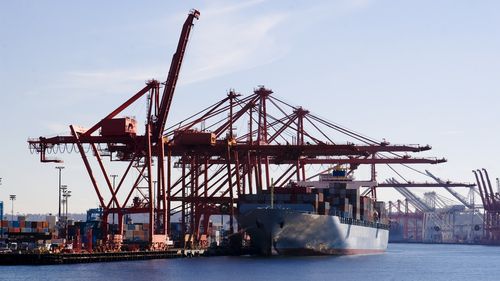Drewry: Container Ports No Longer a Growth Sector

In its latest global industry review, Drewry Maritime Research finds that container terminal operations have reached an inflection point: with demand set to grow at less than three percent per year through 2020, and operating and capital costs on the rise, container ports are becoming a value sector, not a growth sector – still highly profitable, but not rapidly expanding. Drewry finds that many port operators and investors are looking to trim their plans for building out new capacity, and are reconsidering the size of new projects and the timing of when new construction begins.
But just because there is less opportunity in greenfield development, that does not mean that there are not other ways for port operators and investors to increase returns. Just like in container shipping, there is an advantage to scale, Drewry says, and that advantage is more important as carriers and carrier alliances get bigger. Instead of growth through construction, many of the largest operators are now looking to grow through mergers and acquisitions. China Merchants Port Holdings, Yilport, CMA CGM and APM Terminals have all been active buyers in recent months – as has the newly combined COSCO Shipping Ports Limited, the merged ports division of Cosco and China Shipping. Drewry expects that by 2020, COSCO Shipping Ports could be the largest international terminals operator, displacing Hutchison from first place to fourth.
“It is clear that global and international terminal operators are fundamentally reviewing their strategies, becoming cooler on greenfield projects and more interested in M&A opportunities," said Neil Davidson, Drewry’s senior analyst for ports and terminals. "A natural response to the increasing size of liner alliances is for terminal operators to look to consolidate terminal ownership in parallel.”
Davidson suggests that the market is separating out into two distinct camps. On the one side, "many of the established international players have become more cautious because they are concerned that returns may be less than what they are used to." On the other hand, there are those with the desire and the capital for expansion, like the Chinese operators and Turkish firm Yilport Holdings, "whose top strategic priority is to acquire more assets," says Davidson.
There are a few regional opportunities for capacity growth, too, Drewry says: the Middle East remains strong, investment plans are ramping up in South Asia, and with oil prices recovering, Russian container port activity could rise again.
